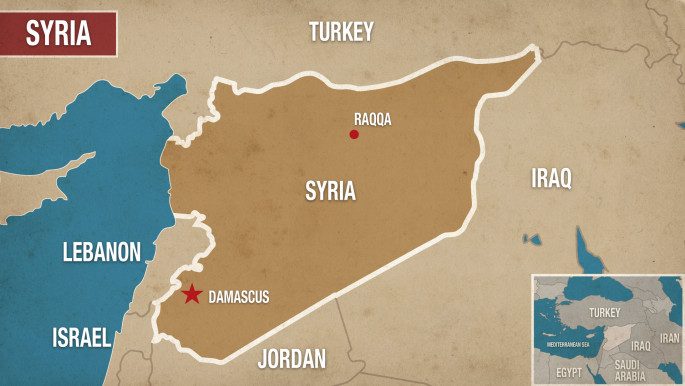Spotlight falls on Raqqa as Tillerson to visit Turkey
A statement put out by the US State Department said that Tillerson’s visit – scheduled for Thursday 30 March – will "reaffirm Turkey's important role in ensuring regional stability" and he will discuss the way forward with "our campaign" to defeat the Islamic State [IS] group in Syria and Iraq.
Talks are likely to focus on campaigns to retake the Syrian city of Raqqa from the group.
Earlier this week US military personnel were involved in a daring behind enemy lines mission that saw units of the US-backed Syrian Defence Force air dropped in IS territory in Raqqa province, near the Tabqa dam.
The Pentagon said that the operations is aimed at opening up a new front in the campaign targeting Raqqa.
SDF forces cut the final main road out of Raqqa earlier this month, and are closing in on the city from the north, east and west.
The only exit out of Raqqa now is over the Euphrates south of the city.
However, Ankara has been angered by the US' decision to entrust the SDF with the Raqqa assault due to the fact that the coalition force includes the Kurdish YPG, which Ankara views as analogous to the Kurdistan Workers Party, which has waged an insurrection against the Turkish state since the 1980s.
Since beginning its cross-border operations in Syria in August 2016, Turkish army troops and Turkey-backed rebels have clashed with the YPG on a number of occasions.
 |
| Click to enlarge |
Instead, Turkey wants Washington to draw from Syrian Arab rebel groups backed by Ankara – who make up the "Euphrates Shield" operation – to lead the decisive assault on Raqqa.
Commenting on the Tabqa air drop, US officials notably said that the vast majority of forces – 75 to 80 percent – dropped behind enemy lines were from the Syria Arab Coalition, a Syrian Arab sub-division within the SDF.
Speaking on Friday French Defence Minister Jean-Yves Le Drian said that the decisive battle for Raqqa would begin in the coming days.
In comment to Reuters the head of the YPG has said that the battle will begin in April, adding that personnel from the group would be taking part.
Campaigns on the city, often described as IS' de facto capital, come at a time when US-backed Iraqi forces appear to be closing in on victory over IS militants in Mosul, with members of the extremist group pushed back into the west of the Iraqi city.
While SDF forces are positioned around Raqqa and appear in a strategic position to launch an attack Washington remains wary of alienating Turkey, a NATO ally.
US-lead coalition forces rely on the use of the Incirlik airbase in Adana, in south-central Anatolia, to conduct aerial missions targeting IS in Syria and Iraq.
Turkish officials, on a number of occasions, have said that Ankara will reconsider the US-lead coalition’s use of the Incirlik if it felt the use of the base was against its interests.
"If you don't use the Kurds, it will take a lot longer while (Islamic State is) sending streams of terrorists out of Raqqa," Senator John McCain, chairman of the Senate Armed Services Committee, said this week, touching upon the conundrum facing the Trump administration.
"But if you do, you have an enormous challenge as far as relations with Turkey is concerned."





 Follow the Middle East's top stories in English at The New Arab on Google News
Follow the Middle East's top stories in English at The New Arab on Google News

![Israeli forces ordered bombed Gaza's Jabalia, ordering residents to leave [Getty]](/sites/default/files/styles/image_330x185/public/2176418030.jpeg?h=a5f2f23a&itok=_YGZaP1z)
